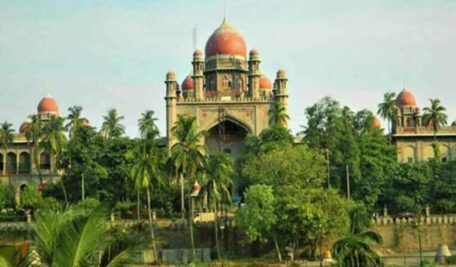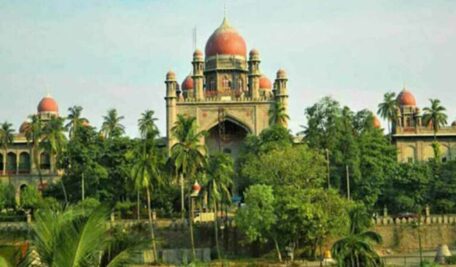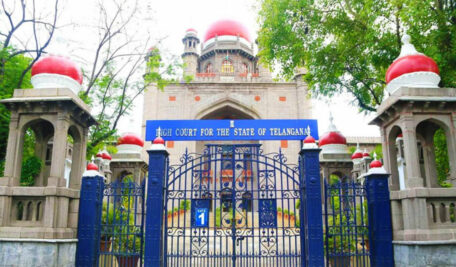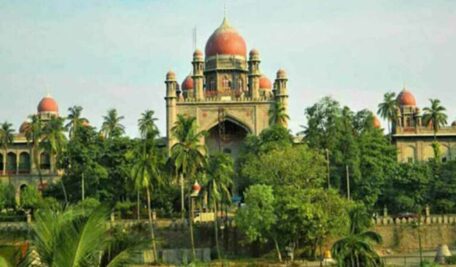State Govt appropriate authority to decide remission applications, says Telangana HC
The division bench comprising Justice K. Lakshman and Justice P. Sreesudha dealt with a writ appeal filed by Joshi Madhavi wife of P. Venkata Bala Ganesh, aggrieved by the order of single judge which directed the central government to take its decision on remission.
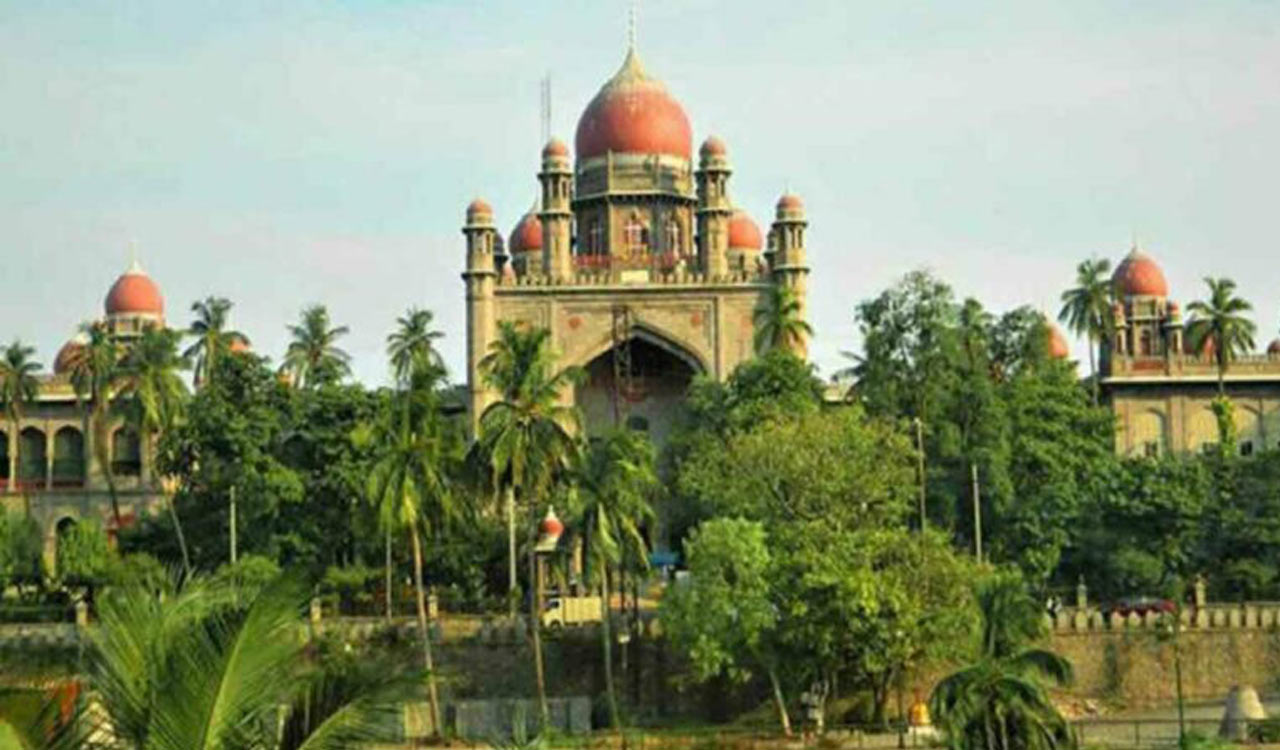
By Legal correspondent
Hyderabad: 1. The Telangana High Court on Monday reiterated that State Government is the appropriate authority to decide remission application seeking whether the convict/offender is reformed completely to start a new life. The court also held that Concurrence and consent of Central Government in terms of Section 435(1) of Cr.P.C. is required before granting remission. The division bench comprising Justice K. Lakshman and Justice P. Sreesudha dealt with a writ appeal filed by Joshi Madhavi wife of P. Venkata Bala Ganesh, aggrieved by the order of single judge which directed the central government to take its decision on remission. Ganesh was convicted for murdering former Ongole MP Magunta Subbirami Reddy and his gunman Ch Venkataratnam in the year 1995 while he was working with the outlawed Maoist party. A mercy petition to release the totally transformed Convict PBV Ganesh who is languishing in the prison since December 1,1995 was under consideration. It may be recalled that the same bench granted interim bail to Ganesh, a life convict at the Cherlapally Jail after 27 years of imprisonment. Today, the bench pronounced the orders on consideration of remission application. Senior counsel B Nalin Kumar Assisted by the on-record counsel T Rahul appeared on behalf of Madhavi. The senior counsel submitted that in the case of Ganesh ‘appropriate government’ to grant remission is the State Government. It was contended that the Central Government has no role to play in the grant of remission. The counsel by relying on apex court judgment stated that matters involving Section 302, the State was the appropriate authority. Whereas, the Counsel for Central government took an opposite view and submitted that the centre was the appropriate authority. The state government submitted that the Ganesh is reformed and deserves remission. The court after considering the said contentions, opined that state government is the appropriate authority to decide remission by applying the test laid down by apex court in V. Sriharan case which held that Section 302 relates to Enty I of List II of the Seventh Schedule. The court held that the ‘appropriate government’ for remission of a sentence under Section 302 is the State Government, however concurrence from the centre is also required. The court further directed the centre to consider the remission application afresh within a period of two months. Accordingly, the bench disposed the matter by extending the interim bail until the remission application is decided.
2. A Two-Judge bench comprising Chief Justice Alok Aradhe and Justice J. Sreenivas Rao of the Telangana High Court on Monday directed notice to Mines Industries and Commerce Department, Environment and Forests Department, Telangana State Pollution Control Board, and other government authorities in a matter pertaining to Environmental pollution in Asif Nagar Village, Karimnagar District due to granite mining and Allied Industries. The division bench was dealing with a PIL taken up based on the letter addressed to the court by D Arun Kumar, complaining the illegal mining activities carrying out in Asif Nagar Village. The letter revealed that pollution levels in the village are increasing daily due to granite mining and allied industries. These granite and stone-cutting and polishing units emit various pollutants, including air, water, and noise pollution. It said the village, once surrounded by beautiful granite hills and lush green nature teeming with wildlife, has lost its natural beauty and become unsuitable for human habitation due to mining activities. The granite hills, previously likened to a goose that laid golden eggs, provided resources for generations and supported livelihood of many communities. The letter outlined the illegal activities impact on the villagers: blasting from the mines has killed bears and polluted over 10 villages, endangering 35,000-40,000 people. Granite processing produces slurry that dries into fine dust, which is improperly dumped into lakes, causing skin diseases and harming aquatic life. In summer, dust spreads to villages, causing asthma and eye issues. Therefore, the letter urged the authorities to safeguard the environment from the pollution caused by granite mining and allied industries. It also sought directions to protect the lakes from contamination, which poses serious health hazards to both humans and animals. Consequently, the court admitted the Public Interest Litigation and adjourned the matter for a response from the concerned authorities.
Related News
-
This is taxpayers’ money: Supreme Court raps freebies culture
10 mins ago -
Hyderabad: Residents oppose Gandhi Sarovar Project over ‘forcible’ land acquisition
22 mins ago -
Australia level series as Indian women slide to 19-run defeat in second T20I
36 mins ago -
Karnataka beat Uttarakhand in semis, to face Jammu and Kashmir in Ranji final
41 mins ago -
Five Osmania varsity players in South Zone squad for Vizzy Trophy
49 mins ago -
Disciplined West Indies bundle out Italy with ease, tops Group C in T20 WC
51 mins ago -
Zimbabwe shock Sri Lanka to enter super eights, African team’s sublime run continues
52 mins ago -
ACB finds irregularities during surprise check at Dundigal municipal office
1 hour ago

